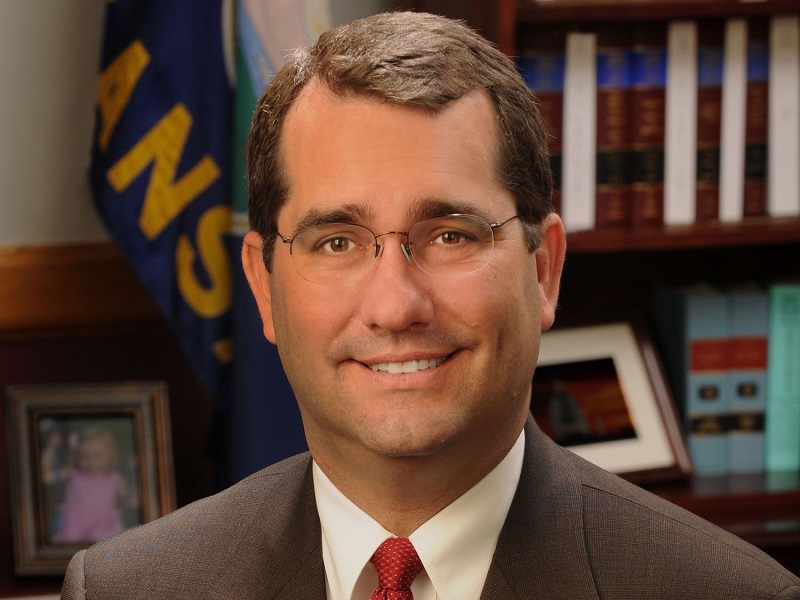Make Your Contributions Count on Giving Tuesday, Throughout the Holiday Season

While many Kansans are generous in supporting worthy causes throughout the year, the holidays in particular are a time to remember those causes we choose to support.
According to Kansas Attorney General Derek Schmidt, Giving Tuesday was established in 2012 as a day to help charitable organizations raise funds as a part of the holiday season, joining Black Friday and Cyber Monday as a special date on the holiday calendar. Each year since, it has been celebrated on the Tuesday after Thanksgiving. This year it falls on November 29.
As you observe Giving Tuesday, or make any charitable donation this holiday season, make sure you are giving to reputable organizations. The best thing you can do to protect yourself from falling victim to a charity scam is to start out your holiday giving with a plan. Make a budget of how much you would like to give and which organizations you wish to support.
Don't wait for the phone to ring or the solicitation email to show up in your inbox and catch you unprepared. Don't let a heartwarming sales pitch from what appears to be a worthy or legitimate charity cause you to let your guard down. Don't feel pressured into making a contribution or a pledge. Reputable charities will always be happy to take your money a couple days or even a couple weeks after they first make contact with you, so take time to do your research.
Here are some more tips to help you give safely:
- Support local, established charities. While there are many large, international organizations that do great work, your donations can often have a greater impact when they support a cause close to your community, where you can see the results of your donations.
- Watch out for names that sound alike. Scammers often make their organizations' names sound very similar to other well-known charities.
- Be careful with telemarketers requesting contributions. Oftentimes, the telemarketer keeps a substantial portion of the donation. If you have questions about a solicitation, don't be afraid to reach out to the charity directly.
- Ask questions to find out where your donations go. Ask for written information, including how much of the money raised is actually used for charitable purposes and how much will end up in the hands of the professional fundraiser.
- Ask if your donation is tax deductible. Not all donations to charities are tax deductible. You can check a charity's status with the IRS at www.irs.gov. When in doubt, double-check with your tax preparer before assuming a donation will be tax deductible.
- Document your donation. Make the donation by credit card or check – not cash or wire transfer. A solicitor that asks for payment by wire transfer is potentially a red flag for scams. During the holidays, some charities will request gift card donations. Consider whether the gift card makes sense in the situation. For example, a charity donating Thanksgiving dinners to needy families might ask for a grocery store gift card for the turkey, but an Apple iTunes gift card may not make sense for the situation. If something doesn't feel right to you, consider donating to a different cause. If you pay by check, make the check payable directly to the charitable organization, not to the fundraiser soliciting the donation. Ask for a receipt to show the amount of the donation and if you specified your donation toward a specific project.
The safest way for Kansans to avoid charities fraud is to take control of their own charitable giving. Rather than responding to solicitations for money that arrive by telephone, in the mail, by email or otherwise. Kansans who wish to support charitable causes should develop their own proactive giving plan and give directly to the charities of their choice. Not only can this help avoid fraudsters but it also eliminates the costs charged by professional fundraisers, instead ensuring every penny of a contribution goes to the charitable purpose itself rather than fundraising expenses. In addition, giving to well-established local charities can maximize the benefit of each contribution and help avoid scams.
The Office of the Attorney General is responsible for registration and enforcement of the Kansas Charitable Organizations and Solicitations Act and protecting consumers from fraudulent charitable and solicitation activities. For more tips or to check out a charity, visit www.InYourCornerKansas.org/charities. If you suspect a charity scam or fraud, or any other violation of charitable solicitation laws, you can file a complaint with the Consumer Protection Division online at the aforementioned website or by calling 800-432-2310.
(Information courtesy Office of the Attorney General.)

